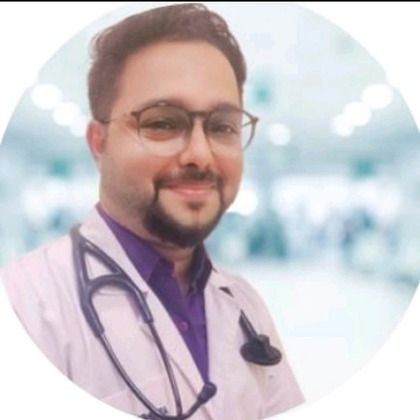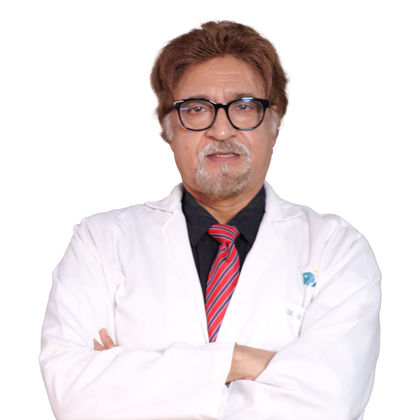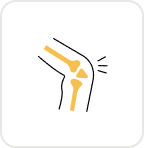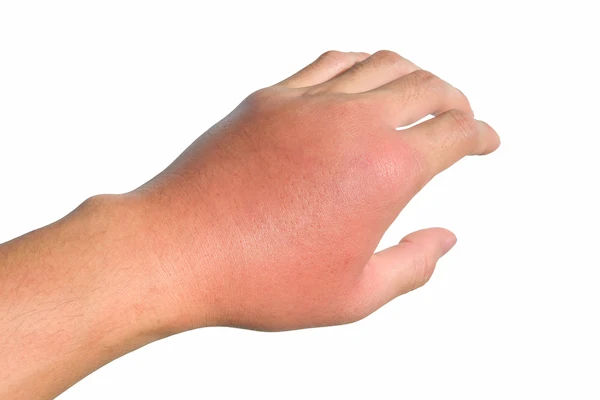Wake Discover Art Sleeping: Doctor's Mnemonic for Daily Wellness
Boost your daily wellness with the ‘Wake, Discover, Art, Sleep’ mnemonic, a simple, doctor-recommended guide to healthy habits and balanced living.

Written by Dr. Dhankecha Mayank Dineshbhai
Reviewed by Dr. Vasanthasree Nair MBBS
Last updated on 13th Jan, 2026

Introduction
Have you ever woken up feeling groggy, struggled to focus throughout the day, or found your creativity hitting a wall? What if a simple tool used by doctors to assess neurological health could be the key to unlocking your daily potential? Enter the "Wake, Discover, Art, Sleeping" mnemonic, or WDAS. In medical settings, this acronym is a crucial checklist for evaluating a patient's level of consciousness and cognitive function. But its principles are surprisingly applicable to our everyday lives. This article will guide you through the art of wake discover art sleeping, not as a clinical test, but as a holistic framework for structuring your day. We'll break down each component, from mastering a conscious awakening to preparing for restorative sleep, and show you how to use this powerful cycle to enhance your mental clarity, boost creativity, and improve your overall well-being. Think of it as a daily system for checking in with your brain’s health, moving from simply functioning to truly thriving.
What is WDAS? Decoding the Medical Jargon
Before we adapt it for daily life, it's essential to understand the clinical roots of WDAS. This foundation gives the framework its credibility and reveals why its structure is so effective.
The Origin of Wake, Discover, Art, Sleeping
In hospitals, particularly in Post-Anaesthesia Care Units (PACUs) or when monitoring patients with neurological conditions, healthcare professionals need a quick, standardised way to assess recovery. The WDAS mnemonic serves this purpose. It stands for:
- Wake: Is the patient awake and alert? Can they open their eyes spontaneously or in response to stimuli?
- Discover: Is the patient oriented? Can they discover and correctly identify a person, place, time, and situation? (e.g., "What is your name? Where are you?")
- Art: Can the patient demonstrate purposeful movement or speech? This assesses motor and cognitive function, the "art" of doing. (e.g., "Squeeze my hand," "Tell me how you feel.").
- Sleeping: Is the patient able to maintain a natural sleep-wake cycle? Can they be aroused from sleep appropriately?
This sequence provides a comprehensive snapshot of brain function, ensuring a patient is recovering safely from anaesthesia or an acute incident.
From Hospital Bed to Your Bedroom: A New Interpretation
While you (hopefully) don't need a nurse to check your orientation each morning, the WDAS framework offers a brilliant template for intentional living. We can reinterpret it as a cycle of daily wellness:
- Wake: Transitioning from sleep to wakefulness with purpose, not panic.
- Discover: Actively engaging your mind upon waking to set a focused tone for the day.
- Art: Tapping into your creativity and flow state to solve problems and express yourself.
- Sleeping: Prioritising high-quality, restorative sleep as the non-negotiable foundation for the next cycle.
This adaptation turns a reactive medical tool into a proactive wellness strategy, helping you take charge of your cognitive function and overall health.
The "Wake" Phase: Mastering the Art of Conscious Awakening
The blare of a smartphone alarm is the antithesis of a healthy Wake phase. In the medical sense, waking is about responsiveness. In your daily life, it’s about the quality of that responsiveness.
Why a Gentle Wake-Up Matters for Brain Function
Being jolted awake triggers a stress response, releasing cortisol abruptly. This can set you up for a day of heightened anxiety and poor focus. A conscious awakening, on the other hand, allows your brain and body systems to come online gradually. Research into sleep inertia, the groggy feeling upon waking, shows that a gentle transition can significantly improve cognitive performance in the first few hours of the day. By mastering the art of waking, you signal to your nervous system that the day is starting safely, promoting calm alertness instead of fight-or-flight.
Practical Tips for a Better "Wake" Phase
- Ditch the Snooze Button: Hitting snooze fragments your sleep and leads to repeated, stressful awakenings. Place your alarm across the room so you have to get out of bed to turn it off.
- Embrace Natural Light: Open your curtains immediately. Exposure to morning sunlight helps regulate your circadian rhythm, suppressing melatonin (the sleep hormone) and boosting serotonin.
- Hydrate Before Caffeine: Drink a full glass of water. Your body is dehydrated after 7-8 hours without fluids, which contributes to fatigue.
- Mindful Moment: Before grabbing your phone, take 60 seconds to breathe deeply and set a simple intention for the day. This practice of conscious awakening is a powerful way to own your morning.
Consult a Sleep Medicine Specialist for the best advice
The "Discover" Phase: Engaging Your Mind After Sleep
After you’ve mastered the wake-up, the next step is to discover your mental footing. This is the equivalent of the clinical orientation test, but for your personal goals and mental state.
Cognitive Exercises to Kickstart Your Day
Instead of passively scrolling through social media, which floods your brain with fragmented information, engage in an activity that requires active cognition. This could be:
- Reading a few pages of a book.
- Working on a crossword or Wordle puzzle.
- Journalling about your dreams, goals, or things you’re grateful for.
- Listening to an educational podcast or an audiobook.
These activities force your brain to discover new connections, improve memory recall, and strengthen focus, effectively "orienting" you to a productive mindset.
The Link Between Morning Discovery and Mental Acuity
By making the Discover phase a non-negotiable part of your morning, you’re not just starting your day smarter; you’re investing in your long-term brain health. It’s a daily workout for your mind, ensuring it remains sharp and agile. If you find yourself consistently struggling with brain fog or memory issues despite these practices, it may be worth consulting a professional. You can consult a doctor online with Apollo24|7 to discuss your symptoms and get personalised advice.
The "Art" Phase: Finding Your Creative Flow State
In WDAS, "Art" assesses the ability to perform tasks. In life, it’s about engaging in activities that bring you into a state of flow where you’re so absorbed in a task that you lose track of time. This is crucial for mental well-being.
How Creativity Functions as a Neurological Checkpoint
Engaging in creative art isn't just for painters and musicians. It could be cooking a new recipe, gardening, writing a report, coding, or even strategising a work project. This phase acts as a checkpoint: are you merely going through the motions, or are you fully engaged? Creativity stimulates the brain's default mode network, which is associated with innovation, problem-solving, and self-reflection. It’s a vital sign of a healthy, active mind.
Simple Ways to Weave "Art" into Your Routine
You don’t need hours of free time. The key is intentional engagement.
- The "Power Hour": Dedicate one uninterrupted hour each day to your most important creative or deep-work task.
- Mindful Mundanity: Turn a routine task like washing dishes or walking the dog into a practice of mindfulness, paying close attention to the sensations involved.
- Hobby Time: Schedule short, regular blocks for a hobby you love, even if it's just 15 minutes of sketching or playing an instrument.
This consistent practice of finding your creative flow reduces stress, boosts dopamine (the reward neurotransmitter), and provides a profound sense of accomplishment.
The "Sleeping" Phase: Preparing for Quality Rest
The WDAS cycle ends with Sleeping, but it’s really the beginning. Quality sleep is the foundation that makes effective waking, discovery, and art possible. It’s when your brain consolidates memories, repairs cells, and clears out metabolic waste.
The WDAS Cycle: Why Sleep is the Foundation
Poor sleep sabotages every other phase. It makes waking up painful, discovery difficult due to brain fog, and creative art nearly impossible because of low energy. Prioritising sleep is the most impactful thing you can do for your cognitive function and overall health. View the "Sleeping" phase not as a passive state, but as an active process of preparation and recovery.
Optimising Your Environment for the "Sleeping" Phase
- Create a Wind-Down Ritual: Start 60 minutes before bed. Dim the lights, avoid screens (blue light inhibits melatonin), and read a physical book or practice gentle stretching.
- Optimise Your Bedroom: Ensure it is cool, dark, and quiet. Consider blackout curtains and a white noise machine if needed.
- Consistency is Key: Go to bed and wake up at roughly the same time every day, even on weekends. This reinforces your body's natural sleep-wake cycle.
If sleep problems persist, such as chronic insomnia or loud snoring, it’s important to seek help. You can book a physical visit to a sleep specialist with Apollo24|7 for a comprehensive evaluation. For some, underlying issues like sleep apnea or vitamin deficiencies might be a factor; Apollo24|7 offers convenient home collection for tests like vitamin D to help identify potential contributors.
Get Your Health Assessed
Implementing the WDAS Framework into Your Life
Understanding the theory is one thing; living it is another. Here’s how to make WDAS a seamless part of your routine.
A Sample WDAS Daily Routine
- 6:30 AM (Wake): Alarm goes off (across the room). Get up, open curtains, drink a glass of water. 5 minutes of deep breathing.
- 6:45 AM (Discover): 20 minutes of reading a non-fiction book while drinking tea. No phone.
- 9:00 AM - 12:00 PM (Art): Tackle your most important work project in a focused "power hour" block.
- 10:00 PM (Sleeping): Screens off. Read a novel for 30 minutes. Lights out by 10:30 PM.
Tracking Your Progress and Well-being
Keep a simple journal. Note your energy levels, focus, and mood each day. Did a better wake-up ritual lead to a more productive discovery phase? Did a creative afternoon make you feel more satisfied? Tracking helps you fine-tune the framework to your unique rhythm.
Conclusion
The "Wake, Discover, Art, Sleeping" framework is more than a medical acronym; it's a philosophy for intentional living. By viewing your day through this structured yet flexible lens, you move from being a passive participant in your health to an active architect of your well-being. This guide to wake discover art sleeping empowers you to check in with your own neurological and emotional state daily. It reminds us that peak performance and peace of mind aren't about pushing harder but about cycling smarter through conscious awakening, mindful engagement, creative expression, and deep restoration. Start small. Pick one phase to improve this week, and notice the ripple effect. Your brain, and your life, will thank you for it.
Consult a Sleep Medicine Specialist for the best advice
Consult a Sleep Medicine Specialist for the best advice

Dr. Suresh G
General Physician/ Internal Medicine Specialist
25 Years • MBBS, MD
Bangalore
Apollo Clinic Bellandur, Bangalore
(225+ Patients)

Dr. Priya Sharma
Pulmonology/critical Care Specialist
9 Years • DM (PULMONARY MEDICINE), DNB, EDARM, MNAMS
Delhi
Apollo Hospitals Indraprastha, Delhi

Dr. Arjun Ramaswamy
Pulmonology Respiratory Medicine Specialist
9 Years • MD (RESPIRATORY MEDICINE), DM (PULMONARY MEDICINE, CRITICAL CARE AND SLEEP MEDICINE)
Mumbai
Apollo Hospitals CBD Belapur, Mumbai
(75+ Patients)

Dr. Debopam Chatterjee
Pulmonology/critical Care Specialist
10 Years • MBBS, MD, DNB, DM(Pulmonary, Critical care & Sleep Medicine, AIIMS), European Diploma of Adult Respiratory Medicine CONSULTANT INTERVENTIONAL PULMONOLOGIST, & SLEEP MEDICINE SPECIALIST.
Kolkata
Apollo Multispeciality Hospitals , Kolkata, Kolkata
(75+ Patients)

Dr. M S Kanwar
Respiratory Medicine/Lungs Transplants
47 Years • MBBS, MD, DNB , MNAMS, FPGC (Austria), FCCP (USA), FAMS
Delhi
Apollo Hospitals Indraprastha, Delhi
(100+ Patients)
Consult a Sleep Medicine Specialist for the best advice

Dr. Suresh G
General Physician/ Internal Medicine Specialist
25 Years • MBBS, MD
Bangalore
Apollo Clinic Bellandur, Bangalore
(225+ Patients)

Dr. Priya Sharma
Pulmonology/critical Care Specialist
9 Years • DM (PULMONARY MEDICINE), DNB, EDARM, MNAMS
Delhi
Apollo Hospitals Indraprastha, Delhi

Dr. Arjun Ramaswamy
Pulmonology Respiratory Medicine Specialist
9 Years • MD (RESPIRATORY MEDICINE), DM (PULMONARY MEDICINE, CRITICAL CARE AND SLEEP MEDICINE)
Mumbai
Apollo Hospitals CBD Belapur, Mumbai
(75+ Patients)

Dr. Debopam Chatterjee
Pulmonology/critical Care Specialist
10 Years • MBBS, MD, DNB, DM(Pulmonary, Critical care & Sleep Medicine, AIIMS), European Diploma of Adult Respiratory Medicine CONSULTANT INTERVENTIONAL PULMONOLOGIST, & SLEEP MEDICINE SPECIALIST.
Kolkata
Apollo Multispeciality Hospitals , Kolkata, Kolkata
(75+ Patients)

Dr. M S Kanwar
Respiratory Medicine/Lungs Transplants
47 Years • MBBS, MD, DNB , MNAMS, FPGC (Austria), FCCP (USA), FAMS
Delhi
Apollo Hospitals Indraprastha, Delhi
(100+ Patients)
More articles from General Medical Consultation
Frequently Asked Questions
What is the primary purpose of the WDAS assessment?
In a medical context, the primary purpose of the WDAS mnemonic is to quickly and systematically assess a patient's neurological status and level of consciousness, typically after anaesthesia or during recovery from a neurological event.
Can the WDAS framework help with anxiety?
Absolutely. The structure promotes routines, which are known to reduce anxiety. A gentle Wake phase minimises morning stress, the Discover phase provides mental grounding, the Art phase offers a positive outlet for energy, and a good Sleeping routine is fundamental for emotional regulation.
I'm not a 'creative' person. What does 'Art' mean for me?
'Art' in this context is not about producing a masterpiece. It's about any activity that absorbs you fully and requires problem-solving or expression. This could be organising data, fixing something around the house, planning a project, or even engaging in strategic games. It’s about the state of flow, not the output.
How long does it take to see benefits from using this WDAS cycle?
Some benefits, like feeling more calm upon waking, can be immediate. Broader benefits for mental clarity and sustained energy may take a few weeks of consistent practice as your body and mind adapt to the new, healthier rhythms.
Is WDAS used for specific medical conditions?
Yes, clinically, WDAS is commonly used in post-anaesthesia care (PACU) and for monitoring patients who have had a stroke, seizure, or other conditions affecting brain function. It helps healthcare staff track recovery and identify any concerning changes promptly.





